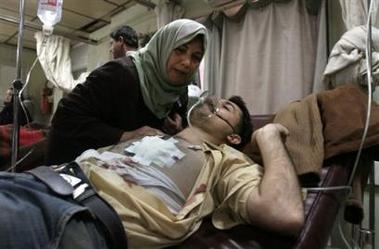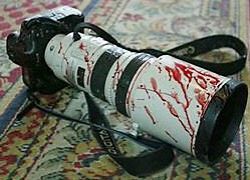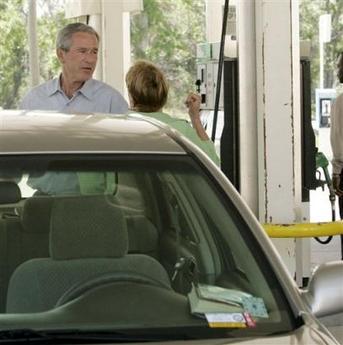I think
the death of Zarqawi will make some difference, at least in the short term on the number of high casualty bomb attacks. My understanding of the tapestry of violence that is the Iraq civil war is that a fair number (not all) of the large casualty bombings were being carried out by his group.
In the short term, I would expect the group to hurriedly execute anything else they have in the near preparation stage both in an attempt to prove they're not wounded, and in attempt to fire their bullets before they get caught. For the first time, the US seems to have gotten some really good high value intel on them.
But, it must be said that at this point, Al Qaeda in Iraq is only one of so many violent actors on the battlefield. The IED's, the death squads, and smaller casualty events both against the US and Iraqis that constitute the mass of the daily violence are largely being carried out by the various factions in the Civil War.
The real question on this that is yet to be answered this morning, is what other damage has been done to Zarqawi's group. We don't yet have ID's on the others who were killed in the airstrike, and we don't yet know how the intel was developed. Does the US have someone inside the group or was this an outside person who knew about a safe house visit?
Remember that there has been an increasingly difficult relationship between the mainline Iraqi-based insurgency and Zarqawi's group peopled with so many foreigners. Their goals and his goals have diverged since negotiations on the government started so many months ago. It's certainly possible that the Sunni insurgency, or some group within it, told the US where he was to get rid of him and get another leader in who they "could work with." We just don't know at this point.
Also, it must be noted that the relationship between Zarqawi's "Al Qaeda" in Iraq and the Bin Laden led Al Qaeda has always been fairly tenuous. I don't know how much Zarqawi was truly working with Al Qaeda and how much the association was just claimed to give him authority. I have to figure that, at the very least, there was little if any conversation and coordination between them, because I would think that communications from Iraq to Pakistan are probably the most monitored in the world.
I don't think Zarqawi's death will substantially dispirit the group, however, succession now becomes a major issue. If you had
travelled to Iraq from Britain for example, I don't think this would make you turn around and go home.
Will there be a clean succession or will we see a fracturing of the group, in which case there might be several smaller groups attempting to carry out attacks in an attempt to grab the mantle?
We're also going to find out over the near term how much of the anti-US Sunni resistance in Anbar was constructed, supported, and carried out by that group.
These are just first thoughts, and I would be quite ecstatic of somehow this dealt a major blow to the overall level of violence in Iraq, but my sense is that we're too far down the road for this to make that major of an impact. The Al Qaeda attack on the Askariyah shrine (the "golden mosque") in Samarra really lit the fuse on the civil war. Since that attack, the significant majority of the violence has been carried out in factional fighting.
So, I do see this as a success in many regards, but it will not even slow the mainline violence of the Civil War, and depending who else was killed in the strike, may or may not hobble his group in the near term. This is certainly a positive step, especially in a PR sense, but as to the degree of difference it will really make, I just don't see all that much.
(Perhaps I should note here that none of the US officials are saying this is going to make any real difference.
Bush.
Gen. Casey.)
UPDATE: From Juan Cole,
we have a report "that groups in Fallujah have launched attacks on Zarqawi followers there after the latter attacked the al-Husain Mosque in the Askari quarter two days ago." That would seem to support the possibility that a Sunni insurgent group "turned Zarqawi over" to the US which is a really intriguing possibility. (The source is in Arabic so I'm just going to trust him.)
Also: Maliki finally presented names to the Iraqi parliament for the Interior and Defense Ministries. They're not yet approved, but I would guess he wouldn't bring them up if the deal hasn't already been struck. More on this later as we find out who they are.
(
Also: Baghdad Burning, the Iraqi blog, really
captures a mood today.)


















